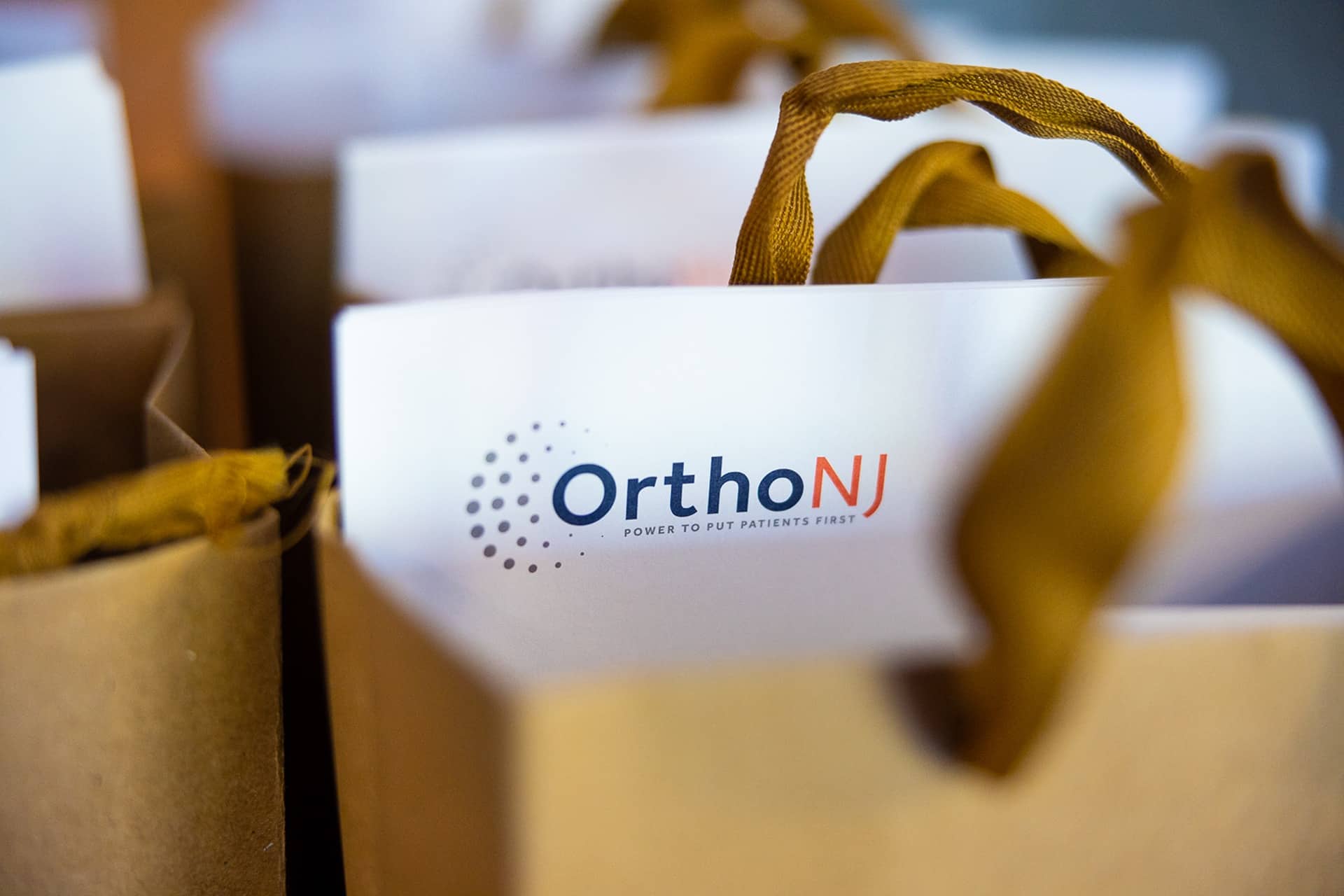Herniated Disc
A herniated disc occurs when the soft inner core of a spinal disc pushes through a tear in its tougher outer layer. Discs sit between the vertebrae and cushion the spine; when part of a disc bulges or leaks out, it can irritate nearby spinal nerves and surrounding soft tissues. This often results from gradual wear and tear, repetitive strain, or a sudden lift, twist, or fall. The spine’s bones, joints, ligaments, and nerves can all be affected. OrthoNJ provides patient-centered evaluation and guidance if you are concerned about a possible herniated disc.
What Are the Symptoms of a Herniated Disc?
- Back or neck pain
- Aching or sharp pain near the level of the herniated disc that may feel worse with activity or after sitting or standing for long periods.
- Radiating pain
- Pain that travels down an arm or leg along a nerve pathway, sometimes described as burning, shooting, or electric-like.
- Numbness or tingling
- Pins-and-needles or reduced sensation in the shoulder, arm, hand, buttock, leg, or foot depending on which nerve is affected.
- Muscle weakness
- Difficulty lifting the foot, gripping objects, or maintaining balance; the limb may feel heavy or unsteady.
- Pain with certain movements
- Symptoms that worsen with bending, twisting, coughing, or sneezing due to increased pressure on the disc and nerves.
- Limited mobility
- Stiffness and reduced range of motion in the neck or lower back that makes everyday tasks harder.
What Causes a Herniated Disc?
- Age-related disc changes: Natural wear can dry and weaken the disc’s outer layer, making tears more likely over time.
- Sudden lift, twist, or strain: Lifting heavy objects with poor technique or twisting under load can overload a disc.
- Repetitive stress: Frequent bending, lifting, or ongoing vibration exposure can contribute to disc injury.
- Traumatic injury: A fall, collision, or sports impact can cause a disc to herniate.
- Other risk factors: Low conditioning, smoking, and higher body weight may increase stress on the spine and discs.
How to Prevent a Herniated Disc
- Safe lifting mechanics: Keep the load close, bend at your hips and knees, and avoid twisting while carrying weight.
- Strong core and back: Regular exercises that build abdominal, hip, and back strength help support the spine.
- Posture and ergonomics: Maintain a neutral spine when sitting and standing; adjust your chair, desk, and screen height.
- Take movement breaks: Stand, stretch, and change positions throughout the day to reduce strain on discs.
- Healthy weight and activity: Staying active and managing body weight can reduce pressure on the spine.
- Avoid tobacco: Quitting smoking supports disc health and overall spine wellness.
- Sleep support: Use a mattress and pillows that keep your neck and back aligned in a comfortable position.
When to Seek Orthopaedic Care for a Herniated Disc
- Severe or worsening pain: Intense pain that limits daily activities or does not settle with rest and over-the-counter measures.
- Progressive weakness or numbness: New or worsening weakness, numbness, or tingling in an arm or leg.
- Changes in bowel or bladder function or saddle numbness: Seek immediate medical attention for these urgent warning signs.
- Pain after a fall or accident: Symptoms that begin after trauma should be evaluated promptly.
- Persistent symptoms: Ongoing pain, stiffness, or radiating symptoms that do not improve over time.
- Trouble walking or balance issues: Difficulty with coordination or frequent stumbling.
An orthopedic surgeon is recommended for a herniated disc. A specialist can evaluate your spine with a thorough exam and imaging as needed, then discuss appropriate treatments, including nonsurgical options and, when necessary, surgery. At OrthoNJ, we will help you understand your diagnosis and personalize a plan to help you return to the activities you enjoy.
Find An OrthoNJ Location
Contact one of OrthoNJ's locations spread out through all of New Jersey.
Why Choose an OrthoNJ Doctor for Your Care?
OrthoNJ is different from your typical medical provider. Unlike many in the industry, we prioritize patient care over profits. Our six divisions work collaboratively to ensure the best outcomes for our patients. We believe in the "Power to Put Patients First," and our doctors and divisional partners strive to uphold this commitment in every aspect of our care.
- With over 120 fantastic physicians, all board-certified, board-qualified, or fellowship-trained, OrthoNJ offers top-tier expertise across a wide range of specialties.
- We serve over 250 communities throughout New Jersey, providing treatment and continuing care for various orthopedic needs.
- With more than 30 statewide offices, our reach extends across the entire state. Whether in North Jersey, South Jersey, or anywhere between, OrthoNJ proudly serves you.
This treatment info is for informational purposes only. Treatment and recovery vary person to person, and you should consult with your treating physician and team for details on your treatment and recovery process.
